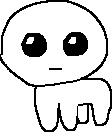WHERE TO GET THE BOOK: http://libgen.is/book/index.php?md5=F6B31A8DAFD6BD39A5986833E66293E6
PRIOR THREADS:
So, it’s been a minute. Apologies. Life has been overwhelming me lately. School, work, more failed attempts at dating, etc. Please be patient, I have autism (probably) 
I was also reading Devon Price’s new book, Unlearning Shame. Definitely recommend. He dismantles shame as a social construct of behavioral reinforcement and the undergirding of the lie that is rugged individualism, and prescribes the cure of building community and understanding social interconnectedness on a deep level. Made me re-examine just how much shame is woven into the fabric of the way I conduct myself and hoo boy it’s a lot. I blame my Catholic upbringing.
Anyway, I figured before I dive back into the next chapter it’d be nice to get caught up and see where everyone is at. Share your thoughts here, ask questions, get caught up. I want to make a new post next week but first I have to write an informative speech and then an essay about some story or another
Let’s cut down on the decision paralysis with some discussion questions:
- What’s new with you, neurodiversity-wise, since the last thread?
- Any points of contention, confusion, or questions from prior chapters?
- Post any thoughts specific to the last chapters that you didn’t get to share before.
Tag post to follow.

I’ve read up to the middle of chapter 6 and sadly I can’t say that there’s something new to how I understand myself. It feels like I lie in the middle between being autistic or not. For example, my processing style is not bottom-up, but I share most of the social struggles.
What has really stood out for me so far is the story of Chris in chapter 3. I relate to feeling “sorry” for people like Chris when they do something socially inappropriate, usually accompanied by large amounts of second-hand embarrassment if they’re in my friend group. I also get a deep fear that other people will consider me “equal” to people like Chris if I hang out with them.
You might have the BAP (Broader Autism Phenotype) then. Also, you don’t need to exhibit all of the behaviors to be autistic
Like Dr. Price points out in the book everyone’s ASD manifests differently
I’m convinced I have enough autistic traits for this book to apply to me and to explain so much of my life better. But I’ve learned the hard way I can’t really tell people I’m autistic, they literally don’t understand, and it just fucks up my chances of having any sort of relationship with them.